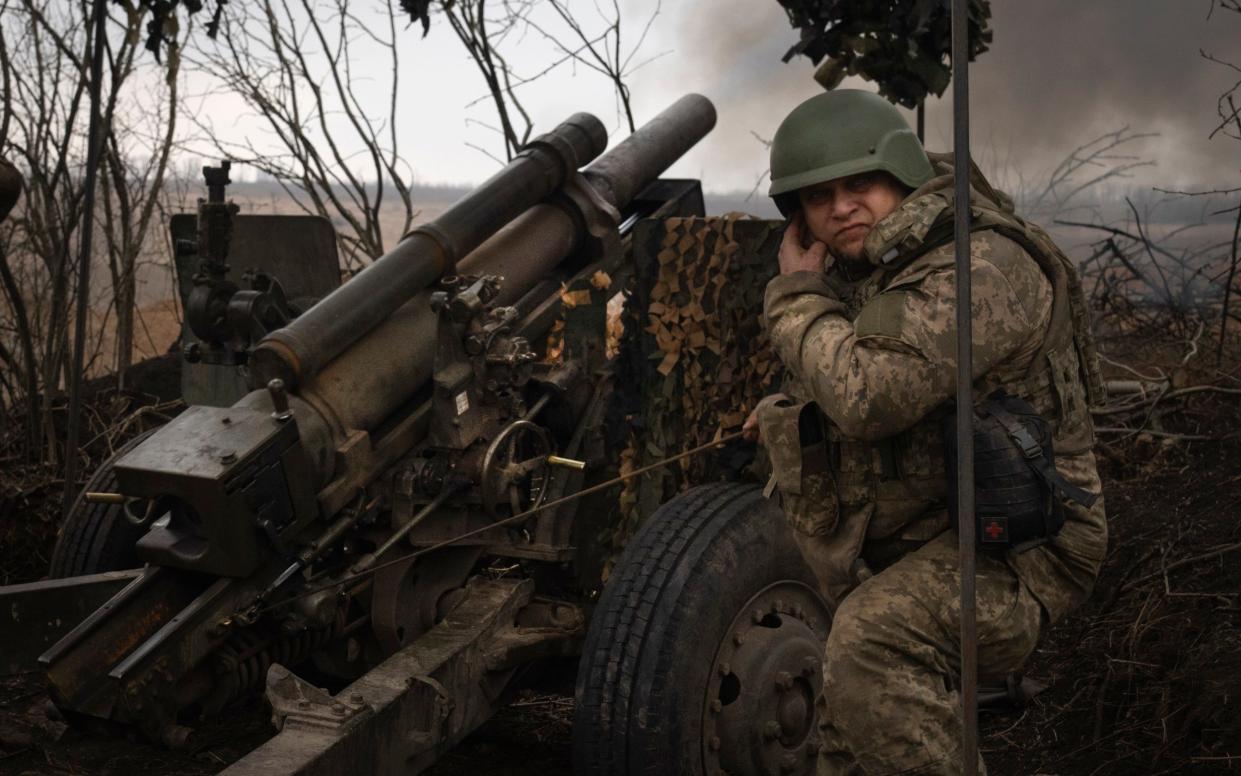Ukraine’s frontline is collapsing – and Britain may soon be at war

- Oops!Something went wrong.Please try again later.
While Western eyes are fixed on Tehran and Tel Aviv, Ukraine’s frontlines are showing clear signs of crumbling. There is a very real possibility they could crumble this summer if we do not throw the kitchen sink at Russia. Even if we do, it may already be too late for the weapons and munitions long promised by the West to save the day.
The toll on both sides has been immense, and much worse than originally thought, but Russia now appears to have the upper hand. Perhaps most critically, the key resource now appears to be manpower rather than jets or tanks.
Russia has lost many more men on the wire of the Donbass than Kyiv has. Yet it seems to have a limitless supply of prisoners and conscripts to throw into its meat grinder. Ukraine, on the other hand, is struggling to scrape up enough men to man its positions. Young men in Ukraine know that a posting to the trenches is very likely to be a one-way ticket. They can see the US locked in internal debate over whether to arm them, and they can also see Britain and America actively intervening to shoot down Iranian drones while refusing to defend Kyiv against the constant Russian bombardment, even when Putin is a far greater threat to our own security. Why, then, would they choose to fight in what the West has apparently deemed a lost cause?
After all, Britain is barely even willing to defend itself. All of our major parties, in their initial electioneering salvos, are saying how important defence is. What they will not do is commit to spend the money we need to ensure our security until economic conditions allow. They should consider instead that security conditions may soon determine the state of our economy.
Our stocks of ammunition and especially precision missiles are thought to be perilously low. It is clear we only have a handful of tanks and even less people to crew them, and too many of our few serviceable fighter jets are patrolling the Middle East rather than Europe.
If the Ukrainian dam breaks this summer, it will already be too late to shore up our crumbling defences. As in 1914 and 1939, we will have to try and cling on in the hope industry can ramp up quickly and that the US will once again guarantee our security. It’s an uncomfortable position to be in.
What we can do right now is help to shore up that dam. We can give Ukrainian troops gas masks and we can shoot down Russian drones and missiles fired at civilians, as we have Iranian ones.
Russia’s frontline gains are partly being driven by the use of chemical weapons. As Bob Seely MP puts it, “the use of a low-level chemical weapon - CS gas - is becoming prevalent along the Ukrainian front lines. They don’t have the correct gas masks. Just like the lack of ammunition, it is killing Ukrainians and endangering them, and ultimately, wider European security.”
We can help with this. Britain is the leading developer and manufacturer of gas marks. It cannot be beyond the wit of the West to get these top-quality masks to the frontlines in Ukraine. As former defence secretary Ben Wallace told me today, “for decades Britain has produced gas masks for many countries. We should be able to lean into this challenge with a significant donation from our own factories”.
Secondly, we have now demonstrated that the RAF and other Nato fighter jets can shoot down drones and missiles fired at civilians without being engaged by Iran. Surely we can offer similar assistance in Ukraine? If we can’t, then we should consider transferring the necessary assets. At the very least, we should tilt our forces back to providing air cover in Europe, rather than in the Middle East. If Putin’s forces do roll past Ukraine’s frontlines and towards Nato’s borders, we need to be ready.
It is in Europe where all our military focus must be. Whether we will be at war with Russia in Europe could well rest on what we do in the next few months to support Ukraine. Westminster needs to get hold of this notion now. If not, we will not be going to the polling stations in November, but to the enlistment centres to draw our packs and rifles to go and fight in Europe, once again.

